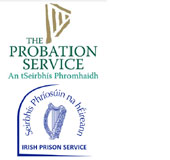You are in: Partnership > Project Partners > Partner's form
| Name of the organisation: | The Department of Justice and Equality (The Probation Service and the Irish Prison Service) |  |
| Address: | The Probation Service, Haymarket, Smithfield, Dublin 7. The Irish Prison Service, IDA Business Park, Ballinalee Road, Longford. |
|
| Tel: | The Probation Service 00353 1 8173600 The Irish Prison Service 00353 43 335100 |
|
| Web site: | http://www.probation.ie http://www.irishprisons.ie |
| Name of the contact person: |
Gerry McNally |  |
| Function: | Assistant Director (The Probation Service) with responsibility for Professional Standards, Business/Organisational Development, Research and international Projects. | |
| Tel: | 00353 1 8173647 | |
| Fax: | 00353 1 8176594 | |
| E-mail: | [email protected] |
| Name of the contact person: |
Ethel Gavin |  |
| Function: | Governor of Loughan House Open Prison | |
| Tel: | 00 353 87 6853769 | |
| E-mail: | [email protected] |
| Name of the contact person: |
Tony Hickey |  |
| Function: | Care and Rehabilitation Directorate Irish Prison Service | |
| Tel: | 00 353 43 3331542 00353 86 8349441 |
|
| Fax: | 0049 (0) 38461 55 105 | |
| E-mail: | [email protected] |
| Name of the contact person: |
Brian Dack |  |
| Function: | Assistant Director (Operations) with responsibility for Probation Service work in custody and Community Service. | |
| Tel: | 00353 1 8173600 | |
| Fax: | 00353 1 8176594 | |
| E-mail: | [email protected] |
| Type of organisation: |
|
| Fields of action: |
|
| DESCRIPTION OF THE ORGANISATION |
The Probation Service is an agency of the Department of Justice and Equality. It is the lead agency in the assessment and management of adult and child offenders subject to community sanctions and supervision in the community.
The Probation Service has over 400 staff, including 280 Probation Officers, in more than forty locations nationwide, with the Service Headquarters at Haymarket, Smithfield, Dublin 7. The Probation Service provides assessment reports, supervision in the community, community service, post-custody supervision for adult and young offenders before Courts. Probation Service personnel also works in IPS prisons and places of detention to rehabilitate offenders, reduce re-offending and facilitate their resettlement and re-integration on discharge from custody. The Probation Service is responsible for the assessment and supervision of almost 9,000 offenders in the community on any day and works with a further 1,600 in custody. The Probation Service works closely with the Irish Prison Service, An Garda Síochána and other agencies of the criminal justice system in Ireland and other jurisdictions and other relevant public bodies such as the Health Service Executive (HSE), Vocational Education Committees, Local Authorities as well as the voluntary and community sector. The Department of Justice and Equality, through the Probation Service, provides funding to almost 60 community based organisations for actions supporting the work of the Service. Detailed information on the Probation Service and its work in courts, prisons and in the community can be accessed at www.probation.ie The Irish Prison Service is responsible for the receipt of all persons held on remand, persons held on immigration related matters and offenders sentenced to terms of imprisonment and for the safe care and secure custody of all of those committed to it by the courts. The Service is responsible for ensuring that convicted persons properly serve sentences imposed on them and that decisions made relating to prisoners in its care do not result in any unnecessary danger/risk to the wider community. The Service is also responsible for engaging with convicted prisoners in a realistic and meaningful way in order to reduce their reoffending and enhance their reintegration back into society, thus contributing to public safety and a reduction in recidivism. The Irish Prison Service deals with male offenders who are 17 years of age or over and female offenders who are 18 years of age or over. The Irish Prison Service operates as an executive agency within the Department of Justice and Equality and is headed by a Director General. Responsibility for the prison system in Ireland is vested in the Minister for Justice and Equality. The Irish Prison Service is administered centrally with its headquarters located in Longford Town. Detailed information on the Irish Prison Service and its work can be accessed at www.irishprisons.ie |
| EXPERIENCE IN PREVIOUS PROJECTS |
JUST/2010/JPEN/AG/1572 30-CE-0420789/00-50 Co-operation for supporting the implementation of the Council Framework Decision 2008/947/JHA on the application of the principle of mutual recognition to judgments and probation decisions with a view to the supervision of probation measures and alternative sanctions in Europe. The Probation Service is currently in a partner, with Italy, in this project led by Romania. Circles4EU This EU JUST 2011-2012 aims to encourage and to facilitate the development across Europe of Circles of Support and Accountability (Circles) as an effective means of reducing sexual reoffending. Circles provide monitoring and support for released sex-offenders by combining combining the efforts of volunteers and professionals. The Probation Service is a Circles4EU project participant. DOMICE (Developing Offender Management in Corrections in Europe) was a two year project (September 2009 -November 2011), funded by the European Commission. The focus of the project was to understand, compare and contrast the ways in which different European jurisdictions arrange and deliver the case management of accused persons and convicted offenders within correctional systems. The Probation Service was a DOMICE project participant. The Probation Service has participated in other EO, COE, CEP and international projects over many years. The Probation Service is a founding member of CEP (The European Organisation for Probation) and continues to be an active contributor and participant in CEP events and projects. The current Irish representative on CEP Council, Suzanne Vella, is a vice-president. |
| EXPERIENCE AND EXPERTISE OF THE ORGANIZATION IN THE PROJECT’S SUBJECT AREA |
The Probation Service has assigned Officers in each prison working with priority prisoner populations contributing to sentence management, resettlement planning and preparation for post-release supervision, where appropriate. For the Probation Service priority groups include prisoners with post custody supervision orders and those whose sentences will be reviewed by the Parole Board. The Probation Service supervised in the community over 1000 offenders on partially or fully suspended sentences of imprisonment. In addition, the Probation Service supervised 173 scheduled sex offenders and 65 life sentence prisoners in the community.
The Irish Prison Service operates and manages Adult Places of Detention and Prisons and is responsible for the custody of prisoners. Legislation and practice makes particular provision for the early release and post-custody supervision of certain offenders and is outlined briefly below. Multi-agency working by the Probation Service and the Irish Prison Service in the preparation and management of prisoners for and on release are important priority tasks for each service and community based partners including An Garda Síochána (Irish Police Service). There are specific multi-agency projects and initiatives for the post custody management of high risk offenders. Legislation Section 99 (Power to suspend sentence) of the Criminal Justice Act 2006 as amended by section 60 of the Criminal Justice Act 2007 and section 51 of the Criminal Justice (Miscellaneous Provisions) Act 2009. The sentencing court makes an order suspending the execution of the sentence of imprisonment in part, subject to the person entering into a recognisance to comply with the conditions of, or imposed in relation to, the Order. The court has wide discretion to impose other conditions. Part 5 of the Sex Offenders Act, 2001. A Court that is imposing a custodial sentence on a person convicted of a scheduled sexual offence is obliged to consider whether or not to impose a sentence involving post-release supervision by the Probation Service. Temporary Release. The Minister for Justice and Equality has authority in legislation (Criminal Justice Act, 1960 as amended by the Criminal Justice (Temporary Release of Prisoners) Act, 2003) to release prisoners for specific periods for purposes including assessing the person’s ability to reintegrate into society upon such release, preparing him/her for release upon the expiration of his sentence of imprisonment etc. The Minister for Justice and Equality may direct that a person serving a custodial sentence be released from prison for a temporary period subject to certain conditions (which may include Probation Service supervision) which are specified in the direction. The Parole Board. Most cases of offenders serving sentences longer than 7 years imprisonment are considered by the Parole Board which advises the Minister on release planning. The Probation Service prepares assessments for the Parole Board and post release supervision when directed by the Minister. All life sentence prisoners are, on release, subject to Probation Service supervision. Multi-agency initiatives SORAM. An Garda Síochána (Irish Police Service) and the Probation Service have developed a model of joint working to ensure the effective management of convicted sex offenders. SORAM (Sex Offender Risk Assessment and Management), provides a model of effective joint working practice incorporating a structure for national and local joint working arrangements, systems to ensure that convicted sex offenders are appropriately risk assessed, with management plans prepared and implemented and there is enhanced understanding of offender behaviour amongst appropriate personnel of both organisations. Community Return. The Probation Service and the Irish Prison Service are engaged in an innovative initiative entitled Community Return. In Community Return selected prisoners serving sentences of one to eight years imprisonment s are released having completed 50% of their earlier with conditions of good behaviour, reporting to the prison and three days per week unpaid work for the community (similar to Community Service) under the direction of the Probation Service. |
| CONTRIBUTIONS THAT CAN BE PROVIDED TO THE PROJECT | The Probation Service with the Irish Prison Service will participate fully in the project contributing expertise, experience and knowledge using both Service’s personnel and resources. Ireland will host work stream 2 workshop in May 2013 comparing existing systems of transition management and will contribute in personnel, resources and expertise to each work stream and the achievement of the overall aims of JUST/2011-2012/JPEN/AG/2943. |
| CONTACT PERSON’S EXPERIENCE AND EXPERTISE |
Gerry McNally Probation Officer, 1978 – 1995 Senior Probation Officer, 1995 – 2002 Regional Manager, 2002-2006 Assistant Director, 2006 to present. Currently responsibility for Professional Standards, Business/Organisational Development, Research and international Projects. Member of the Probation Service senior management team. Wide experience in Probation work and management in the community and in prisons. Editor of Irish Probation Journal 2012. Ethel Gavin I am 22 years in the Irish Prison Service. I have worked in 5 different prisons of varying security levels. I have worked in the Irish Prison Service Training Centre for 3 years. Throughout my time as a prison manager I have focused on work/training as an essential part of the personal development and reintegration of prisoners back into the community. I have a Masters Degree in Criminal Justice. My thesis focused on integrated sentence management (ISM) as a holistic approach to preparing any prisoner for return to the community. Loughan House is an open, low security prison for males aged 18 years and over who are regarded as requiring lower levels of security, with an operational capacity of 140. Prisoners who are towards the end of a long sentence can be sent to an open prison as part of their reintegration/resettlement plan. Tony Hickey I have worked in the Irish Civil Service for the last 20 years and joined the Department of Justice in 2007 and have worked in the Irish Prison Service since. I have worked in prisoner programmes division including Vocational Training, Education, Chaplaincy, Sex Offender Programmes. Currently I am involved in the rollout of the Incentivised Regimes Policy. This is a rewards based programme which aims to incentivise better behaviour and more active participation in rehabilitation programmes. Brian Dack Probation Officer, 1984 –1995 Senior Probation Officer, 1995- 2003 Regional Manager, 2003 –2006 Assistant Director, 2006 to date Currently responsible for the management of Probation Service work in prisons and, Community Service. Alternate member if the Interim Parole Board. Member of the Probation Service senior management team. |